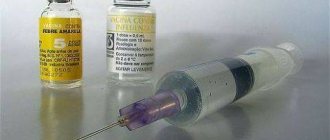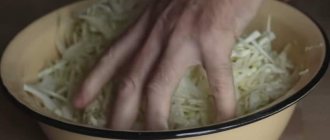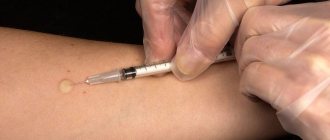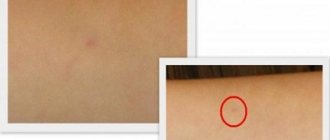04.09.2017
For decades now, some scientists and enthusiasts have been trying to prove that there is no benefit from mantoux, but only harm. The number of side effects and allergic reactions baffles even the most diligent parents who fully trust medicine. And, as a result, they are increasingly refusing the Mantoux test. Refusing Mantoux is not an easy procedure: a simple parental “no” is not enough to complete it. They will have to go through a lot of bureaucratic authorities, fill out a bunch of documents and only then breathe easy.
Despite the questionable benefits of the test and the categorical prohibition of use in many Western countries, this diagnostic method is still used in the post-Soviet space.
The law allows not to make mantu if it contradicts the religious views or other beliefs of adult parents. Due to the fact that there is unspoken pressure on them from the heads of preschool, medical and other educational institutions, it is very difficult to formalize a refusal of the mantoux sample.
Is it necessary to indicate the reason for refusal?
For example, if a woman refused Mantoux, then formally she is not obliged to give reasons for her choice; the law is on her side.
But, in fact, she will be obliged to explain her position one way or another. And in this case, she simply needs to correctly formulate and justify her refusal from the point of view of official medicine. With the simplest explanation, it is enough to motivate by dubious reactions in the body of children to the composition of Mantoux. The application, if desired, includes lists of side effects and other evidence of allergic reactions.
It is also important to include a written opinion from your attending physician or allergist. Based on the conclusion, you can appeal about the impossibility and danger of conducting a pediatric tuberculin test
Next, a signature is placed on the application and deciphered.
If the head of an educational institution exerts psychological pressure by preventing a child from attending classes, it is imperative to require a written statement from him, in which the director must legally correctly justify the reason for not allowing the child to attend classes. Otherwise, you can safely write a complaint to the local prosecutor’s office about abuse of power by the director of the educational institution and violation of constitutional rights. The argumentation must include laws and legal norms.
https://youtube.com/watch?v=Vx_y96AMpXI
Child's rights
Most often, the administration requests additional information from parents, namely, a conclusion from the attending physician that the child does not have tuberculosis. Thus, the staff of the educational institution wants to protect other children from a dangerous epidemic.
You do not have to go to the TB clinic with your whole family right away. In such cases, we write a statement in several copies addressed to the doctor. Indicate your concerns for the child’s health, and also do not consent to going to such medical institutions. Minors have the opportunity to become infected with tuberculosis. The document must be compiled correctly, in which case you will be provided with an alternative research method.
Is it possible to refuse Mantoux, as is enshrined in law?
For several years now, there has been a lively discussion on the Internet about the right of parents to refuse vaccination and to conduct a diagnostic test of the Mantoux reaction for their sons and daughters. Most “refuseniks” justify their actions with concern for the health of their children, citing the negative experience of some acquaintances or a temporary deterioration in the well-being of their own child during previous tuberculin tests.
Indeed, in Art. 20 of the Federal Law “On Health Protection” enshrines the priority of voluntariness when carrying out any medical manipulation. But the same law clearly stipulates that refusal to provide medical care, including preventive vaccinations, should not conflict with the interests of society. And the refusal of the Mantoux diagnostic test is precisely in conflict with public interests. Tuberculosis is a socially dangerous disease, the fight against which is carried out at the state level.
By opposing themselves to society, such parents demonstrate illiteracy, hiding behind the law, which they interpret one-sidedly, seeing in the law only those provisions that are beneficial to them. You can refuse. But it should be remembered that refusal can lead to a lot of unnecessary troubles, first of all, for the child: a ban on staying in a kindergarten, holiday camp, sanatorium, suspension from school.
In what cases can you refuse vaccination?
Refusal to vaccinate must be justified. The law does not provide for mandatory exact motivation, but in some form the applicant must formulate his reluctance to have his child vaccinated or have an allergy test. In most cases, parents write that they are afraid of the consequences of Mantoux. Some advanced people even indicate that the tuberculin test contains preservatives: Tween-80 and phenol. Having heard that phenol is a strong poison, they protest against its administration to the child, fearing an allergy to Mantoux.
Legal basis for refusal
The legal grounds for refusal are the Constitution of the Russian Federation and Article 5 of Federal Law No. 157-FZ (as amended on March 7, 2018) “On the immunoprophylaxis of infectious diseases.” The first provides for the inadmissibility of using coercive measures against a citizen against his will. The law specifies that it is unacceptable to take measures of a specifically medical nature against the will of the patient or against a minor without the consent of parents/legal representatives, except in cases where the failure to provide medical care creates a threat to the life of the ward. This right, while respecting the rights of the child, should be exercised wisely, not forgetting that with his refusals the patient creates difficulties not only for himself, for the sake of selfishness or some internal beliefs, but also for a large number of people around him who are forced to spend time solving the problem born of stubbornness.
In what cases can you refuse Mantoux?
Every student in school or kindergarten is required to undergo the Mantoux procedure. In order to take the test, you do not need to additionally visit various doctors. Very often, the tuberculin diagnostic procedure is done right in the educational institution. During diagnosis, educators, teachers, and doctors must strictly follow all recommendations. Despite this fact, many parents continue to refuse Mantoux. For this they write a special statement.
This issue is regulated by special regulations. The text of the law states that the vaccination procedure is completely voluntary. Thus, parents' personal interests are considered the most important factor. The administration cannot administer the drug without informing representatives of minor children. You can refuse vaccinations at school at any time.
After refusing Mantoux, you need to think about what alternative ways there are to determine the body's response to tuberculin. To prevent tuberculosis, many consent to fluorography, take blood and urine tests, and also examine sputum. Refusal of the Mantoux procedure does not relieve parents of all responsibilities. It is very important to take this issue responsibly, since tuberculosis is a fatal disease in many cases. It is impossible to completely abandon the diagnosis of tuberculosis. In such cases, the disease can develop into a more dangerous stage.
You can safely not do Mantoux if the child has undergone a comprehensive medical examination within a year. Attach the results of this procedure to the written refusal. Operate with the information that was obtained as a result of the analyzes.
Pay attention to the main signs of the disease. Many parents refuse the tuberculin diagnostic procedure in the following cases:
- The child’s lymph nodes are normal;
- body weight does not change over a long period of time;
- good level of appetite;
- the skin is not pale;
- The body condition is very good, cough and temperature are normal.
In the event that you do write a refusal, your child does not have to undergo additional examination. The baby’s health will depend entirely on you; take care of tuberculosis prevention issues.
If the administration receives threats
Despite the legality of parents’ voluntary refusal to undergo vaccination against tuberculosis, many educational organizations resort to all sorts of “cunning” tricks in an attempt to achieve their goal. Sometimes their actions are not legal or legal. Can anything be done about this?
According to most lawyers and advocates, no one has the right to force parents to write consent for Mantoux vaccination. Employees of educational institutions also do not have the right to exclude children from attending classes, citing unproven suspicions and their lack of vaccination for tuberculosis. Such actions can easily be called criminal.
If a parent, as the legal representative of his child, wrote a refusal to administer the tuberculosis vaccine on time and handed it over to school administration employees, then they do not have the right to continue to “terrorize and force” the child to get vaccinated. If a child receives complaints about such actions by school or kindergarten employees, parents should visit this educational institution and seriously talk about the current situation with its representatives. In this case, it is necessary to rely on the adopted law protecting the rights of children to refuse vaccinations, as well as some articles of the Constitution of the Russian Federation. All this should become a compelling argument that can stop the spread of rot against “unvaccinated students.”
In the event that a parent’s visit to the school administration regarding the forced imposition of anti-tuberculosis vaccinations on children did not produce any results, it is necessary to contact a higher authority.
This body is the Department of Education. Even if such a measure does not stop medical workers and educational representatives from their illegal activities, you can apply to a law office. Experienced lawyers with excellent knowledge of existing legislation will help resolve the existing conflict and defend the interests of children and their parents. Such actions in most cases lead to the final outcome of any conflicts of interest between parents and representatives of educational organizations.
Parents should remember that knowing their rights, they should not forget about their main responsibilities, which are to care for their own children and their health.
Paradox in Russian legislation
The fact is that doctors themselves admit that the Mantoux test does not guarantee the timely detection of tuberculin bacilli in the child’s body. Moreover, a positive reaction may generally be false. Nevertheless, they are forced to do such a test under the threat of not being accepted into a kindergarten or school, although legally this is illegal. The peculiarity of the legislation of the Russian Federation allows you not to go through such a procedure, but a huge bureaucratic “machine” stands in the way, which is difficult to bypass.
The very fact that in kindergarten a child is subjected to forced diagnosis without the consent of the parents is illegal and violates the rights of citizens. This applies not only to Mantoux, but also to other medical examinations and even vaccinations, but the healthcare system, under the pretext of caring for the future generation, violates this in every possible way. It is almost impossible to prove anything. Even if a manifesto was issued in a certain region prohibiting the refusal of Mantoux, you still need to protect your rights, since such decrees are contrary to the Constitution.
Specificity of Mantoux
The tuberculosis vaccination is one of the first vaccines; it is administered to the child’s body 2-3 days after birth. Thus, refusal of BCG vaccination must be done in the maternity hospital. The Mantoux test is a slightly specific procedure that is done annually. Every child is guaranteed the right to quality medicines.
The process itself is quite simple. The doctor must inject a special substance into the upper part of a person’s arm, which will demonstrate the specificity of the body’s reaction to the tuberculosis pathogen. The total duration of testing is three days. During this period of time, the child is not recommended to scratch the local test site too much. It is very important to obtain a completely reliable result. After some time, the redness needs to be measured and conclusions drawn.
One of the most common disadvantages of Mantoux is the fact that the sample may show an incorrect result. In this case, children are often sent to the local TB clinic, where they can come into contact with patients. It is precisely because of incorrect indicators that parents completely abandon Mantoux.
You also need to understand that phenol (one of the elements of the substance) can cause a fairly strong allergic reaction. The very composition of such a test raises concerns. Parents are worried that the components of the medications will be of poor quality. Depending on the individual characteristics of the body, there may be a risk of intolerance to substances.
New sanpin mantu - question No. 5142676 dated 10/17/2014
- Yes you can refuse according to RUSSIAN FEDERATION
- THE FEDERAL LAW
- On immunoprophylaxis of infectious diseases
- (as amended as of December 21, 2013)
- Article 5. Rights and obligations of citizens when carrying out immunoprophylaxis
- 1. When carrying out immunoprophylaxis, citizens have the right to:
- obtaining from medical workers complete and objective information about the need for preventive vaccinations, the consequences of refusing them, and possible post-vaccination complications;
- choice of a medical organization or individual entrepreneur carrying out medical activities;
(Paragraph as amended by Federal Law of November 25, 2013 N 317-FZ. - See previous edition)
free preventive vaccinations included in the national calendar of preventive vaccinations and the calendar of preventive vaccinations for epidemic indications in medical organizations of the state healthcare system and municipal healthcare system;
(Paragraph as amended by Federal Law of November 25, 2013 N 317-FZ. - See previous edition)
medical examination and, if necessary, medical examination before preventive vaccinations, receiving medical care in medical organizations in the event of post-vaccination complications within the framework of the state guarantee program for the provision of free medical care to citizens;
(Paragraph as amended by Federal Law of November 25, 2013 N 317-FZ. - See previous edition)
- the paragraph became invalid on January 1, 2005 - Federal Law of August 22, 2004 N 122-FZ - see the previous edition;
- social support in the event of post-vaccination complications (paragraph as amended, put into effect on January 1, 2005 by Federal Law of August 22, 2004 N 122-FZ - see previous edition);
- refusal of preventive vaccinations.
- 2. Lack of preventive vaccinations entails:
- a ban on citizens traveling to countries where, in accordance with international health regulations or international treaties of the Russian Federation, their stay requires specific preventive vaccinations;
- temporary refusal to admit citizens to educational organizations and health institutions in the event of the occurrence of mass infectious diseases or the threat of epidemics;
(Paragraph as amended, put into effect on September 1, 2013 by Federal Law of July 2, 2013 N 185-FZ. - See previous edition)
refusal to hire citizens for work or removal of citizens from work, the performance of which is associated with a high risk of contracting infectious diseases.
The list of works, the performance of which is associated with a high risk of contracting infectious diseases and requires mandatory preventive vaccinations, is established by the federal executive body authorized by the Government of the Russian Federation (paragraph as amended, entered into force on January 1, 2009 by Federal Law of July 23, 2008 N 160 -FZ, see previous edition).
- 3. When carrying out immunoprophylaxis, citizens are obliged to:
- follow the instructions of medical professionals;
- confirm in writing the refusal of preventive vaccinations.
Is it possible to refuse to have a Mantoux test performed on a child?
Parents have the right to refuse to have their children undergo the Mantoux test. To do this, they need to submit a corresponding application. However, for an unexamined child to visit an educational organization, a certificate from a TB doctor will be required.
Reasons for performing the Mantoux test
Tuberculosis is an infectious disease included in the List of socially significant diseases, as well as in the List of diseases that pose a danger to others ( Resolution of the Government of the Russian Federation dated December 1, 2004 No. 715 “On approval of the list of socially significant diseases and the list of diseases that pose a danger to others”
).
In order to prevent tuberculosis and provide anti-tuberculosis care, a set of measures is being carried out, aimed, in particular, at early detection of the disease (paragraphs 2, 8, 9 of article 1 of the Federal Law of June 18, 2001 No. 77-FZ “On preventing the spread of tuberculosis in the Russian Federation "
; Lists approved
by Decree of the Government of the Russian Federation dated December 1, 2004 No. 715
).
To detect tuberculosis, preventive medical examinations are periodically carried out. They represent a complex of medical interventions using certain examination methods depending on the age of the subject, for example (clause 4 of article 8 of the Federal Law of June 18, 2001 No. 77-FZ
;
clause 8 of the Procedure and timing of preventive medical examinations, approved. By Order of the Ministry of Health of Russia dated March 21, 2017 No. 124 n
):
1) for children aged 1 year to 7 years (inclusive) - immunodiagnosis using a bacterial allergen with two tuberculin units of purified tuberculin in a standard dilution;
2) for children aged 8 to 14 years (inclusive) - immunodiagnosis using recombinant tuberculosis allergen in standard dilution;
3) for children aged 15 to 17 years (inclusive) - immunodiagnosis using recombinant tuberculosis allergen in standard dilution or X-ray fluorographic examination of the chest organs (lungs).
Refusal to perform the Mantoux test on a child
Anti-tuberculosis care is provided to citizens with their informed voluntary consent to medical intervention. To provide assistance to children under 15 years of age, this consent must be expressed by one of the parents or other legal representative (clauses 2, 3, article 7 of the Federal Law of June 18, 2001 No. 77-FZ
).
At the same time, a citizen or, in the case of a child under 15 years of age, one of his parents or another legal representative has the right to refuse medical intervention. In this case, the possible consequences of such a refusal must be explained to them in a form understandable to them. Such a refusal is issued in the form of a document on paper or generated in the form of an electronic document (Parts 3, 4, 7 of Article 20 of the Federal Law of November 21, 2011 No. 323-FZ “On the fundamentals of protecting the health of citizens in the Russian Federation”
).
As a rule, an application for refusal is drawn up in the prescribed form. It is issued by the organization that conducts the Mantoux test.
Consequences of refusing to perform the Mantoux test
The absence of preventive vaccinations entails, in particular, a temporary refusal to admit a child to an educational organization in the event of widespread infectious diseases or the threat of epidemics. However, the immunodiagnostic test for tuberculosis infection (Mantoux test, test with recombinant tuberculosis allergen) is not a preventive vaccination and, accordingly, refusal to carry it out does not cause the indicated consequences (clause 2 of article 5 of the Federal Law of September 17, 1998 No. 157-FZ “ On immunoprophylaxis of infectious diseases"
;
Decision of the Supreme Court of the Russian Federation dated April 18, 2019 No. AKPI 19-115
).
At the same time, an educational organization is obliged to create safe conditions for training, supervision and care of students, their maintenance in accordance with established standards that ensure the life and health of students (clause 2, part 6, article 28 of the Federal Law of December 29, 2012 No. 273-FZ “On education in the Russian Federation”
).
Thus, the lack of examination for tuberculosis infection presupposes the enrollment of a child in an educational organization with the subsequent choice of forms and methods of the educational process, excluding the unexamined child from attending a healthy children's group ( Clinical recommendations sent by Letter of the Ministry of Health of Russia dated 04/07/2017 No. 15-2/10/2 -2343
;
Part 4 Art. 3 of the Federal Law of December 25, 2018 No. 489-FZ
).
In this case, the right to general education is ensured for those children whose legal representatives refused immunodiagnostics, and the right to protect the health of other children studying in an educational organization ( Decision of the Supreme Court of the Russian Federation dated April 18, 2019
No. AKPI 19-115
).
At the same time, children who have not undergone tuberculin diagnostics are allowed into an educational organization if they have a TB doctor’s conclusion about the absence of the disease (clause 5.7 of the Sanitary and Epidemiological Rules SP 3.1.2.3114-13 “Prevention of Tuberculosis
", approved.
by Decree of the Chief State Sanitary Doctor of the Russian Federation dated October 22, 2013 No. 60
;
Letter of the Ministry of Health of Russia dated 04/08/2019 No. 15-2/927-07 “On the issue of the procedure for admitting children to educational organizations who have not undergone tuberculin diagnostics
.
It should be noted that in order to identify manifestations of tuberculosis infection in children and adolescents, various immunodiagnostic methods are used. Thus, if the parents (legal representatives) of the child refuse intradermal tests (Mantoux test, test with recombinant tuberculosis allergen), it is possible to prescribe alternative examination methods in order to exclude tuberculosis in the child (in vitro diagnostic tests - T-SPOT.TB, QuantiFERON (R) -TB Gold, plain X-ray of the chest organs) ( Clinical recommendations sent by Letter of the Ministry of Health of Russia dated 04/07/2017 No. 15-2/10/2-2343
).
If you refuse immunodiagnostics (any other method that allows you to exclude tuberculosis), the TB doctor determines the possibility of issuing a certificate or medical report about the absence of an active form of tuberculosis. The grounds for their registration are ( Clinical recommendations sent by Letter of the Ministry of Health of Russia dated 04/07/2017 No. 15-2/10/2-2343
):
- results of screening examination for tuberculosis;
-results of alternative examination methods;
- results of a fluorographic examination of the child’s environment no more than 6 months old;
- data from radiation methods for examining the chest organs;
- data on contact with tuberculosis patients;
- the absence or presence of complaints or symptoms in the child that give reason to suspect tuberculosis.
Based on materials (“Electronic magazine “ABC of Law”, 2019)
How to refuse correctly
A refusal to conduct Mantoux must be drawn up with references to regulations that regulate the conduct of anti-tuberculosis examinations or protect human rights. You may encounter a situation where the management of a kindergarten requires a certificate of a tuberculin test for the child.
Acting in accordance with the law, parents can challenge in court this ban on their child attending this preschool institution. To do this, you need to write a refusal from Mantoux in two copies or print out 2 official refusal forms. One of them will remain in the kindergarten, and the second (signed by the director) will remain with the parents. Additionally, you can draw up a statement of refusal, in which you can justify your decision in writing. Based on these documents, you can appeal the decision of the local leadership to the prosecutor's office.
Sample application
Applications must be completed correctly: without spelling errors, with accurate indication of all contact information and the date of submission of the document. You can refuse samples for 1 year. In the additional document, it is necessary to indicate as accurately as possible all regulations and describe in detail the reasons why conducting tuberculin diagnostics in this case is undesirable.
What do you think are the most important factors when choosing a medical facility? Poll Options are limited because JavaScript is disabled in your browser.
Approximate structure of an additional disclaimer:
- In the application for refusal, indicate the preschool institution that requires the Mantoux test. The application is drawn up in the name of the head of the kindergarten.
- Express refusal of medical intervention indicating your data and the child’s data.
- Indicate a list of regulations that violate the preschool institution’s requirement to conduct Mantoux tests on a child:
- Art. No. 7 (part 3) of the Law of the Russian Federation “On preventing the spread of tuberculosis”;
- Art. No. 32 and Art. No. 33 “Fundamentals of the legislation of the Russian Federation on the protection of the health of citizens”;
- Art. No. 26 UDHR and Art. No. 43 of the Constitution of the Russian Federation;
- Art. No. 5 (part 1) of the Law of the Russian Federation “On Education”;
- clause 11 part 1 of the European Social Charter.
- Declare that there are no consequences for refusing to conduct tuberculin diagnostics provided for by current legislation.
- Refuse to visit the PTD, arguing that such an action is a medical intervention.
- Justify the refusal by the inconsistency of the diagnostic method due to the error in determining the result obtained, the presence of false-positive reactions, the receipt of which may entail an unjustified risk of infection when visiting the PTD and the unreasonable prescription of preventive treatment.
- Make a request to consider the application and (in case of a negative decision on it) issue a refusal in writing indicating the reasons for appealing to the prosecutor's office.
As an example of drawing up a statement of refusal to undergo Mantoux, you can use the official sample of refusal of vaccination.
Is it necessary to indicate the reason for refusal?
In the application, parents are not required to describe in detail why they do not want their child to receive Mantoux.
But by indicating the reasons for the refusal, the likelihood that the application will be considered and approved the first time increases.
Completion Instructions
How to write a refusal? To do this, you can contact either the school principal or a medical institution. If there are no special forms for writing an application, it can be drawn up on a sheet of A4 paper using a special algorithm. To refuse vaccination, you must follow this plan:
- In the upper right corner you must indicate to whom the application is being written. If it is filled out at school, then to the director, and if at the clinic, then to the head physician of the TB department. The person's position is indicated, as well as his full name.
- Then, just below the center of the sheet, the word “statement” is written. It should be larger than the rest of the text.
- After this, the person must write that he refuses the Mantoux injection. Here the parent must indicate his full name and child.
- Below is the reason why Mantoux is rejected. In principle, a person can omit this point, but indicate the legal aspects. For example, you can write which law and which article talks about the right to refuse any vaccinations, including the Mantoux test.
- At the very bottom of the page the date is written, and the parent also puts his signature. After reviewing the document, the person to whom the application was addressed also signs.
If a person does not know how to write a statement correctly, they should explain to him how to do it. The document must come into force on the same day as it is written. And they must respond to it within 10 days. If this does not happen, you may need to reapply.
We are writing a statement
Refusal of the Mantoux procedure is a rather serious decision. It is very important to follow the correct algorithm of actions. Thus, the document will be legally correct. Many parents ask the question of how to correctly write a vaccination refusal. There is a special formula that must be filled out by the child’s representative. The Mantoux waiver itself may contain specific references to legislation; a sample document can often be found in the hospital. There should be no errors in the text. In the finished form it will be enough to indicate your full name, number and your signature. It's best to take care of this in advance.
The text should be addressed to the head of the institution who is responsible for the tuberculin diagnostic procedure. This could be the school director, as well as the head physician. Simply print out the completed form and then enter your personal information on it. Nobody should do Manta forcibly, it all depends on your decision.
You need to act immediately after receiving notification of a planned Mantoux test. Prepare your application carefully. It is advisable to write the name of specific documents, the text of which contains information about the right to refuse Mantoux. This way, you will be able to avoid unnecessary disputes with administration representatives and doctors. You will find the form of the required document on the Internet.
It is not recommended to refuse such a procedure if there are problems with the tests, general health, or the color of the child’s skin. Such symptoms may indicate a risk of tuberculosis. The immune system must be strong enough.
Legal grounds for refusal
By law, parents can refuse to take the test.
You need to operate with the following laws:
- Article 7 part 3 of the law “On preventing the spread of tuberculosis”. Anti-tuberculosis care is provided to minor patients only with the permission of their legal representatives.
- Fundamentals of health legislation. Article 32 states that consent to medical intervention is required. Article 33 indicates that a person has the right to refuse these manipulations.
- Universal Declaration of Human Rights (Article 26), Constitution of the Russian Federation (Article 43). These documents give the right to receive education, including preschool.
- Law “On Education” (Article 5 Part 1). Opportunity for all citizens to receive education, regardless of health status or other factors.
- European Social Charter (clause 11 part 1) a person has the right to take any measures that ensure the highest level of health.
note
Every person has the right to get vaccinated on a voluntary basis. Some components of the tuberculin test (namely phenol) can harm humans. If your child feels great, you can stop vaccinations and Mantoux. Consent to vaccination is not recommended if there is a possibility of developing an allergy.
The result of the Mantoux procedure is not the only true one. There remains a fairly large chance for error. Write an application to the clinic (hospital), school or kindergarten. It is better to keep one copy of the document for yourself. You should receive a response to your request within 10 days. During this period of time, the child’s rights cannot be infringed; he must continue to study in a common group.
Refusing the Mantoux test - the right steps
If the decision was initially made not to subject their child to various types of research, such as the Mantoux test, vaccinations, x-rays, parents should know the algorithm of actions so that their refusal is not unfounded. Some mothers, echoing the stories they heard from friends and acquaintances, write a refusal, but cannot give an explanation for their action. Therefore, doctors and representatives of children's institutions put pressure on them, manipulating the law.
If vaccinations prevent the possibility of infection with dangerous viruses, then the tuberculin test is not so important. When going to an appointment or receiving a notification from a kindergarten or school about vaccination or Mantoux test, we act as follows:
When going to an appointment or receiving a notification from a kindergarten or school about vaccination or Mantoux test, we act as follows:
- In the direction or card of the son or daughter we write the refusal and the reason for such a decision.
- We prepare an application in advance addressed to the head of the clinic, kindergarten or school, in which we indicate our decision that we want to refuse examination using the Mantoux test. We draw up a statement for the addressee and make a copy for ourselves or write another copy. The form of the document and the list of laws that give you the right to refuse Mantoux can be found on the Internet.
But we pay special attention to the following points:
- the voluntary right of every person to be vaccinated and tested for tuberculosis;
- harm to humans from the components (phenol) of the tuberculin test;
- the baby is feeling well and there are no signs of tuberculosis;
- unreliable results and methods of measuring papules after the procedure;
- the possibility of an allergic reaction in a baby to unfamiliar substances;
- contacting the prosecutor's office or the Ministry of Health if the situation does not change.
You hand over one copy to the addressee, having received a mark on acceptance of documents on your copy
This is important so that you don’t have to prove the fact of the appeal later.
A response to the application must be given within 10 days, but the child cannot be restricted from visiting the group for this period.
At the phthisiatrician after Mantoux
If you have been given a referral to a TB specialist after Mantoux for the first time, you will probably have a number of questions about how to properly prepare for the visit and what to expect in the specialist’s office.
What you need to take with you to your appointment with a TB doctor
To make a correct diagnosis, it is important to provide the doctor with as much information as possible at the first appointment. The patient or his adult accompanying persons must collect all available documentation, the package includes:
- results of all previously performed tuberculin tests with exact dates;
- a certificate of all vaccinations and vaccinations performed with exact dates;
- fresh blood and urine tests, if available;
- results of the last fluorography for an adult or adolescent over 15 years of age;
- results of consultation with narrow specialists, if any;
- a medical record that records all past infectious diseases, surgical interventions, and allergic reactions.
You should also tell the doctor in detail whether there have been cases of tuberculosis and other serious infectious diseases in the family, and inform about all chronic diseases and previous operations.
Whom TB specialists will consider infected with tuberculosis and register
They register those patients who, in addition to a positive Mantoux reaction, other tests (Diaskintest, PCR) also gave a positive result, and an x-ray, CT scan and other studies confirmed changes in the lungs. Further actions and treatment methods depend on the form of the disease and severity. In case of a closed latent form, a short course of chemoprophylaxis is carried out. In case of open form of tuberculosis, the patient must be placed in a hospital setting.
What tests will a phthisiatrician prescribe if you refuse Mantoux or to clarify the diagnosis?
To clarify the diagnosis, the phthisiatrician prescribes Diaskintest, x-ray or fluorography, biochemical blood tests and sputum culture. A positive Mantoux does not 100% confirm the presence of tuberculosis. But these are grounds for consulting a phthisiatrician after a positive Mantoux test and conducting more thorough examinations of the patient.
Pros and cons of testing and the possibility of refusal
In order to correctly make a decision for or against, parents must understand exactly what this procedure is and for what purpose it is being done.
So, you need to understand that Mantoux is not a vaccination, it is a test that detects the presence of an active tuberculosis bacillus in a child’s body. Tuberculosis is a serious and dangerous disease that a child can encounter anywhere. No one is safe from infection in hospitals, clinics, shops, or public transport.
All countries of the former Soviet Union are classified as areas with a high risk of tuberculosis. This is why strict control is necessary. Can this be done only using the Mantoux reaction? Of course not, but you can significantly reduce the risk of developing a tuberculosis epidemic.
When performing the Mantoux test, destroyed bacteria are injected under the skin. If the body has already encountered this type of infection, a specific reaction will appear on the skin.
The most important arguments in favor of testing:
- The Mantoux test is not considered a vaccination; it is a simple diagnostic test that does not lead to changes in the body and therefore cannot cause harm.
- The test is done once a year, so there is no cumulative effect.
- It is the Mantoux test that will be able to identify carriers of a dangerous disease and undertake the necessary treatment in a timely manner.
Facts that encourage the abandonment of Mantoux:
- There are supporters of the opinion that regular tests are harmful to health, and in combination with poor nutrition and difficult environmental conditions can be completely destructive for the child’s body
The drug Tuberculin uses phenol-containing elements. Phenol is known to have a detrimental effect on cells, as it is a poison. Despite the fact that its concentration is very small, many believe that even a small dose entering the body can be harmful.- Tuberculin can cause allergic reactions. Adding to the deterioration of the child’s well-being is the fact that often, due to an incorrect interpretation of the child’s reaction, children are registered with anti-tuberculosis dispensaries, where they are exposed to additional risk,
- The performed reaction does not provide 100% detection of the disease. Even in people suffering from tuberculosis, it can show a negative result.
Reasons for refusal
According to the law, it is possible to refuse the mantoux test at school. Moreover, this does not lead to any consequences. That is, parents cannot refuse to admit their child to school until he passes the test.
The parent has the right to refuse the study in the following cases:
- He believes that the Mantoux test can harm the baby. For example, a child is allergic, and his body reacts very strongly to any injections.
- The child is completely healthy, does not cough, and all his tests are normal.
- The baby has a weak immune system, so weakened tuberculin antigens can provoke the development of tuberculosis (it is not recommended to test if the child has anemia).
In addition, according to many parents, the Mantoux test is imperfect and is not suitable for schoolchildren. After all, it gives an accurate result in 80% of cases, but there is a 20% chance that there will be errors. In addition, the tuberculin test is harmful to the child, as it contains small concentrations of phenol. In rare cases, it can lead to heart or kidney failure.
If the school insists on conducting the study, parents can replace Mantoux with other safer tests. For example, a blood test may be taken from a child, which will later be checked for a reaction to tuberculosis antigens.
Possible consequences of failure
If parents decide to refuse the Mantoux test, the kindergarten management may require a certificate from a TB doctor stating that the child does not have tuberculosis.
Why are they sent to a TB specialist and what to do?
A referral to a TB specialist is an additional measure of anti-tuberculosis examination, which is required to be offered in kindergarten if the refusal is granted.
At the same time, parents cannot be required to provide a conclusion from a TB specialist if such a specialist sees patients only in the PDT, since a visit to him can lead to the child becoming infected with tuberculosis. If the management of the kindergarten has decided that such a certificate is needed for a visit, the examination of children should be organized in a safe environment. Otherwise, parents can write a complaint to the prosecutor's office.
Pressure on the child and threats to parents
The main threats are related to exclusion from kindergarten. They cannot be implemented legally and are considered criminal actions on the part of the administration.
When putting pressure on a child, do this:
- Discuss the incident with management.
- If the pressure continues, apply:
- a complaint to the education department;
- statement to law enforcement agencies.
Can they force it?
If you are forced to do Manta, such behavior by teachers or the director of an educational institution is illegal. The procedure cannot be carried out without the knowledge and consent of the parents if the person is under 18 years of age. Therefore, if a child was diagnosed with Mantoux, and his parents were not aware of this, they have the right to complain about the school and the doctors.
There are no consequences for refusing to undergo the procedure. The law does not require additional tests or diagnostic studies. But if the doctor continues to stand his ground, you can test the child for tuberculosis in safer ways, according to the parents.
Unfortunately, in real life, parents often encounter the fact that employees of a medical institution illegally demand that their child be checked by a TB specialist. At the same time, they threaten that they will not be allowed into school without Mantoux.
If parents are against testing, then it is better not to go to a TB doctor. The doctor will begin to intimidate you about a possible disease, and will begin to persuade you to do Mantoux or even fluorography. In addition, after visiting such a specialist, a healthy child can be registered. And in this case, it will be much more difficult to refuse any anti-tuberculosis checks.
Reasons for refusal
For the purpose of anti-tuberculosis protection, the Mantoux test is carried out in all preschool and educational institutions. The administration and medical workers of the institutions ensure that children are given tuberculin every year. In this way, it is possible to diagnose tuberculosis in a timely manner.
Parents have the right to prohibit the procedure.
The reasons for refusal are as follows:
- the right to vaccination and tuberculosis diagnosis is voluntary;
- the components of the administered drug (phenol) are harmful to health;
- absence of symptoms of the disease, good health of the baby;
- unreliability of results and methods for measuring papules;
- risk of allergies.
Consequences of refusing a tuberculosis test
If vaccinations can be postponed due to the baby’s health, then doctors advise parents to do the Mantoux test at any time.
Representatives of medical or educational institutions begin to intimidate parents that a child will not be enrolled in kindergarten or school without being tested for tuberculosis.
- Not every modern mother is savvy in legal issues, her rights and her child. Refusing the Diaskin test before the age of three, they begin to get problems when they undergo a medical examination before kindergarten or school. The head of a clinic may refuse to sign and issue a patient’s medical card, or the head of a children’s institution may not accept a student into the team.
- Resistance can also be obtained at a later age, when the child is already attending kindergarten or school. Doubting the need for another dose of tuberculin, parents write a refusal to undergo the procedure. In kindergarten and school, children are given preventive vaccinations according to their age and given the Mantoux test every year. If a refusal is received without any health contraindications, the nurse or director begins to put pressure on the child or parents that the student cannot attend kindergarten or school without the permission of the TB doctor.
For example, refusal of Mantoux at school often threatens the student with restrictions on participation in various events (Olympiads, sports competitions, thematic rallies, etc.). It is a serious violation of human rights when there are no symptoms indicating a threat to others. A child of any age can be isolated from the team if the diagnosis of tuberculosis is confirmed.
How to refuse the Mantoux test?
Parents who oppose the Mantoux reaction are concerned with the question of whether it is possible to refuse Mantoux if the child is in school or kindergarten. And what could be the consequences of refusal?
Legislative grounds
Until adulthood, all vaccinations and tests cannot be carried out without parental consent. This right is enshrined at the legislative level (law regulating policy in the field of combating the spread of tuberculosis in Russia, No. 77-FZ).
According to the law, any preventive vaccinations are voluntary, and refusal to carry them out cannot serve as an obstacle to enrolling a child in a kindergarten or school. Exceptions may include mass infections and diseases.
Parents can independently write a waiver of the Mantoux test if their child has not had contact with a patient with tuberculosis. Visits to a preschool or educational institution can be restricted only in cases where the child is suspected of showing signs of illness.
In March 2015, the All-Russian Congress of Phthisiatricians took place in Moscow. The central topic at the meeting was the issue of canceling the Mantoux reaction and replacing it with Diaskintest.
The new drug provides more accurate diagnostic results. As a result, it will be less likely to be used. Based on research results, the new drug has proven to be highly effective.
Opponents of the new method believe that the drug, designed to replace tuberculin, accurately shows the disease only at the moment of bacterial multiplication. At the initial stage it will show a negative result. And the point of this test is precisely to identify the disease at the very beginning.
According to the results of the forum, since 2014, children aged 7 to 17 years have been recommended to replace the Mantoux test with Diaskintest. But in practice, this is how the Mantoux test is carried out in schools. Parents have the right to write a refusal to conduct a test at any time. By law, all tests of this kind are carried out only at will. Only people who are already infected or have become ill with tuberculosis are required to be examined.
Medical workers try to intimidate refusing parents, who do not know the refusal procedure, with the idea that their child will not be allowed into kindergarten or school.
If mothers refused the test before the child reached three years of age, they may encounter problems when completing medical documentation when entering kindergarten. The management of the clinic may refuse to issue the necessary document, and when enrolling a child in a school institution, they may threaten not to accept him into the team.
You can also encounter pressure while your child is already studying at school or attending kindergarten. During the next test, parents write a refusal, and begin to receive threats from the administration. They begin to put pressure on parents, saying that their child will be suspended from classes or from attending kindergarten.
There have been cases when refusal of Mantoux at school led to the child being suspended from school activities, for example, participation in the Olympiad and sports competitions.
This is a serious violation of the child’s rights, since by law he can be removed from the team only if he is diagnosed with a disease.
Recommendations for writing refusal papers
Any document, including a refusal to conduct Mantoux, must be correctly drawn up.
Such papers should be drawn up carefully and based on some recommendations:
- Be sure to indicate in full your last name, first name and patronymic, year of birth and residential address on the form.
- If you have been given a ready-made form in your hand, carefully read its contents and indicate in a special line your attitude towards vaccinating your child.
- If you write a refusal in any form, be sure to indicate the basis for your decision. In this case, you can refer to both the state of health of your child and the legislative framework of our state. Also, in a special line, indicate your attitude towards vaccinating your child.
- Be sure to include your signature at the end of the form along with the transcript and the date the document was submitted.
The completed form must be submitted to the administration of the educational institution. You should refuse only if you are fully confident that this pathology does not threaten your child. If you have any doubts, you should visit a TB doctor and undergo mandatory diagnostics.
In the immense concern of parents for their children, they need to take the right position, which will not harm them in the first place.
If you are sure that Mantoux reactions have already lost their relevance, use another method, but be sure to undergo diagnostics. Today Diaskintest is very popular, so you can turn to it.











